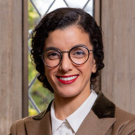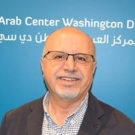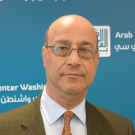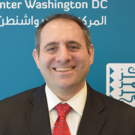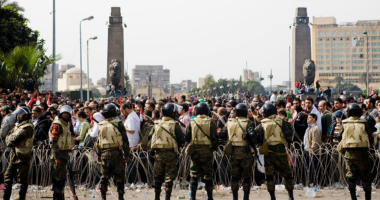
Speakers
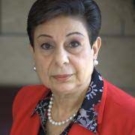
Hanan Ashrawi
Former Member of the Leadership Committee and Official Spokesperson of the Palestinian delegation to the Middle East peace process

Mai El-Sadany
Executive Director, Tahrir Institute for Middle East Policy (TIMEP)

Natasha Hall
Senior Fellow with the Middle East Program, Center for Strategic and International Studies

Nader Hashemi
Associate Professor, Edmund A. Walsh School of Foreign Service, Georgetown University and Director of the Alwaleed Center for Muslim-Christian Understanding

Amy Hawthorne
Middle East Expert; Former Deputy Director for Research, Project on Middle East Democracy (POMED)

Kyle Kondik
Managing Editor, Sabato’s Crystal Ball, the University of Virginia Center for Politics

Tess McEnery
Executive Director, Project on Middle East Democracy (POMED)
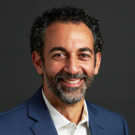
Ahmed Morsy
Senior Researcher with the Middle East and North Africa Programme, Stockholm International Peace Research Institute (SIPRI)
Moderator
About the Conference
The events of the Arab Spring more than a decade ago emphasized the popular and widespread aspirations for democratic governance across the Middle East and North Africa (MENA). However, the processes of democratic transformation that followed were met with greater repression, military coups, civil wars, and the entrenchment of authoritarianism. In recent years, shifts in the regional geopolitical order and emerging alliances have created a new axis of authoritarian powers and repressive partnerships that have become not only accepted but enabled by western democracies. Developments such as the rehabilitation of the Assad regime, the recent Saudi-Iran rapprochement, the Abraham Accords, Turkey’s reentry into the regional order, and the United States’ policy realignments and its great power competition with Russia and China may further contribute to the erosion of democratic principles and of prospects for political reforms across the region.
Arab Center Washington DC is dedicating its eighth annual conference to exploring the current crisis facing democratization and the implementation of reforms across the Middle East and North Africa. This one-day conference explores the current state of democracy and democratic regression in the MENA region and focuses on the evolution of US policy toward the region and the status of human rights there. Experts will analyze the implications of both recent geopolitical shifts and the emerging authoritarian order, the trend of rehabilitating autocratic and oppressive regimes, the impact of current economic crises, growing human insecurity, the need for reforming Middle East politics and governance, and the upcoming US Presidential elections and their impact on US foreign policy and democracy promotion in the region.
Agenda
| 9:30 AM | Registration and Breakfast |
| 10:00 AM | Opening Keynote Address Democracy and the Future of US Foreign Policy in MENA |
| 10:30 AM | Panel I Rehabilitating Dictators, Supporting Repression: Shifting Geopolitics and Democratic Regression in MENA This session will explore recent trends and geopolitical shifts in the Middle East and North Africa, and will examine their impact on autocratic entrenchment and the prospects for democratic governance in the region. Panelists will analyze authoritarian legacies in the Arab world and discuss recently shifting alliances and developments such as the rehabilitation of the Assad regime, autocratic regression in Egypt and Tunisia, the Abraham Accords, the Saudi-Iran rapprochement deal, changing US foreign policy priorities, and the global rise of authoritarianism. Speakers will also provide recommendations in support of policies that center democratic governance and respect for human rights. Speakers: |
| 12:00 PM | Lunch |
| 12:30 PM | Luncheon Keynote Conversation Human Rights and Just Peace in a Changing World: Lessons Learned 30 Years after the Oslo Accords Keynote Speaker: |
| 1:00 PM | Panel II The Prospects for Political Reform: Centering Human Security and Rights in MENA This session will focus on the state of human rights and human security in the Middle East and North Africa and the prospects for political and economic reform. Panelists will review the status of human rights in the Arab world, socioeconomic conditions and widespread corruption, health and humanitarian access, and the impact of protracted conflicts and climate change. Speakers will examine prospects for governance reforms and transitional justice processes, and will also present new approaches to state-society relations and provide policy recommendations for democratic transitions and the centering of human rights. Speakers: |
| 2:30 PM | Coffee Break |
| 3:00 PM | Panel III Democracy in US Foreign Policy: Impact, Legacy, and the Implications of the 2024 Elections This session will examine the legacy of US foreign policy in the Middle East and North Africa and the impacts of US democracy promotion programs in the region. Panelists will assess US policy priorities in the Arab world, the credibility of the United States, and long-term US interests in MENA. Speakers will also discuss the current state of US domestic politics, trends in US public opinion regarding foreign policy, predictions for the 2024 presidential elections, and potential impacts on US policy in the Arab world. Speakers: |
| 4:30 PM | Adjournment |
To attend via Zoom, click the “Register” button and select “Attending virtually via zoom” under “Attendance Preference.”
Featured image credit: Flickr/Hossam el-Hamalawy


